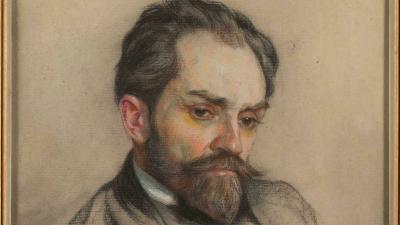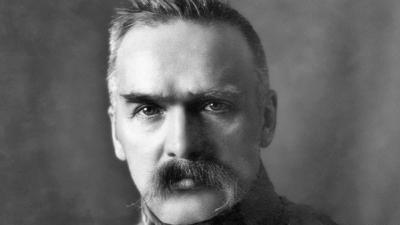Can We Communicate? On Epistemological Incompatibilities in Contemporary Academic Discourse
In 1990 the American philosopher Alasdair MacIntyre published Three Rival Versions of Moral Enquiry: Encyclopedia, Genealogy, Tradition. [1] The last chapter of this book is titled “Reconceiving the university and the lecture,” and it ends with a proposition: in academic discourse we should “introduce” ourselves before we start speaking. The introduction should be a statement revealing our epistemological beliefs. Without such introduction, says MacIntyre, university debates amount to talking at cross-purposes because in today’s academia discussants tend to speak different and mutually exclusive epistemological languages. The lack of a common philosophical base for humanistic debate makes it difficult if not impossible to convey what we have in mind.
To many university professors and students in Poland, MacIntyre’s proposition may seem excessive. Quite a few academics in Poland profess that such a common base does exist, and that it goes back to the Enlightenment tradition of objectivity, rationality, [2] fairness, and a sincere desire to arrive at the truth. At first glance, it may seem that this attitude suffices to conduct fruitful debates. Most people agree that in all discussions one should approach one's subject “with an open mind” and without any preconceptions or prejudices. Scholars and students in Poland, and to some extent in the United States, also tend to believe that knowledge is cumulative and that we know more today than we knew a century ago. This implies that the knowledge we acquire from contemporary thinkers is somehow better or more advanced than the knowledge offered by thinkers who lived in previous centuries. We also tend to believe that as long as the rules of fair play are observed, we can discuss and communicate, even though we hold different beliefs. The university lecture is therefore an exposition of new facts and/or new interpretations of facts, and is supposed to be an addition to and improvement on the already existing body of knowledge.
However, some elements of the dream of objectivity that the Enlightenment promoted were already undermined in the nineteenth century. That century can be called, after Paul Ricoeur, “the school of suspicion.” [3] Perhaps the most significant of the destroyers of the Enlightenment was Friedrich Nietzsche. In Genealogy of Morals (1887) and earlier, in The Gay Science (1882), he not only argued against Christianity but also, and even more fundamentally, against the very notion of truth. He famously asked, “What is truth?” and answered, “A mobile army of metaphors, metonyms, and anthropomorphisms . . . . enhanced, transposed, and embellished poetically and rhetorically, and made into a canon. . . truths are illusions about which one has forgotten that this is what they are.” [4] Nietzsche questions the notions of truth, of knowledge, of duty, of right, of good, of evil. In his opinion, there is no such thing as truth-as-such, but only truth from a point of view. Nietzsche believed that all commentary is interpretation and that all interpretation is subjective. The will to power is distorted into and concealed by the will to truth. Furthermore, there is no core meaning to the human personality, to the “I.” “I” is the sum total of relationships, ideas, and personal history. There is only doing but no doer. [5] There are no permanent things: as Heraclitus put it, panta rei, everything flows. [6]
After Nietzsche came others. Freud argued that what we took to be filial devotion is in fact envy and competition with the parent. Once the notion of the subconscious set in, there was no end to the deconstruction of pieties that used to be taken for granted. Jacques Lacan offered extravagant hypotheses about the subconscious, while Jacques Derrida tried to finally dismantle logocentrism, or the idea that for meaning to arise one has to assume the existence of some processing center, whether in the mind or in reality. The Enlightenment-oriented scholar might get dizzy from all this, and yet he could not simply throw away Nietzsche, Freud, and other “philosophers of suspicion.”
The contrast between the tradition of the Enlightenment and the tradition of post-Nietzschean epistemology is enormous, and differences between the two cannot be glossed over. Particularly grave is disagreement about the notion of truth. The Enlightenment believed in objective truth, while Nietzsche and postmodernity claim that the concept of truth itself should be rejected because it is an essentialist notion and belongs to an outdated (logocentric) way of reasoning. Heidegger’s dynamic notion of truth as aletheia (unconcealment) made it inaccessible to non-philosophers and placed it poles apart from Aristotle’s simple definition. Thousands of humanities graduate students in humanities in all Western countries parrot these new approaches without pondering their implications.
Can we, then, discuss things philosophical if one person adheres to the Enlightenment tradition and claims that scholars in humanities are looking for “objective truth,” while another says that such discourse has no place in postmodern times? We are, as MacIntyre suggests, “inheritors of a number of rival and incompatible traditions,” [7] and we profoundly disagree about how books should be read and interpreted. Should we not then at least state our premises at the very beginning of discussion?
The two traditions described above – MacIntyre calls them the tradition of the encyclopedia and the tradition of genealogy – differ in fundamental ways in their approach to truth and the possibility of finding it; therefore they also differ in their approach to books and their interpretation. The Enlightenment approach created the list of so-called Great Books that should be read at universities because they are the best texts humanity has produced (ironically, Nietzsche made the list). The post-Nietzschean or postmodern tradition is skeptical of the very idea of the Great Books. In MacIntyre’s words, while the Enlightenment philosophers, the French encyclopedists in particular, aspired to displace the Bible as a canonical book, the (post)modernist intends to discredit the whole notion of a canon. [8] Furthermore, the Enlightenment looked at knowledge as cumulative, a sort of gigantic encyclopedia updated by every generation of humankind, whereas the idea of such continuity is profoundly alien to anyone steeped in the tradition of postmodernity.
You can see from this sketchy outline that contrary to what followers of the Enlightenment once thought, there is no single “objective” mode of reading and discussing intellectual matters. Of course we use, to some extent at least, certain rules of logic bequeathed to us by ancient Greeks, but even with the rules of logic in place we cannot avoid subjective judgments and decisions. That is why MacIntyre proposes that before we start an academic discussion, we should introduce ourselves and state which epistemological tradition we favor.
But is this enough? It has to be pointed out that communication between Enlightenment adherents and postmodernists is hard if not impossible. The two groups speak different languages and define basic concepts in a different way. The impossibility to communicate often masquerades as contempt: this person is a primitive because he or she has not read Foucault or Deleuze. Or the reverse: this person is simply using jargon and, in reality, has nothing to say. Another situation that arises from a lack of common ground is switching epistemological allegiances according to circumstances: yes, I am a postmodernist, but while negotiating with my publisher I become an Enlightenment rationalist.
What is to be done? Is there a way of thinking and communicating that is different from the two ways I described? MacIntyre thinks there is, and so do I. To reach it we have to revisit the epistemological propositions discussed so far and look at them critically. The first step is to recognize that thinkers such as Nietzsche and Freud did indeed undermine some of the facile assumptions of the Age of Reason. In particular, they showed that language is not a translucent piece of glass through which we see the world without any distortion whatsoever. Language deflects the world in many ways, and its representational ability is more complicated than the French Encyclopedists or John Locke assumed. Second, our own psyches are more complicated than the Enlightenment people thought. Our volitional side (whether we call it the will to power, the will to be, the will to overcome, id, or the subconscious) cannot simply be annulled or silenced by our reason; we are never totally objective, unprejudiced, and unemotional. Our passions and desires find innumerable ways to cloud our reason and make the Enlightenment project utopian. Just invoking “reason” and hoping that this solves all problems will not do; more often than not we would be deceiving ourselves by doing so.
MacIntyre contends that in the last few centuries epistemology lost its moral dimension that used to be an integral part of knowledge. He calls this lost epistemology “the third tradition” and posits that it presupposes inseparability of moral and intellectual life. In order to conduct an enquiry into anything – philosophy, society, psychology, politics, literature – and arrive at sensible conclusions, one has to have a certain predisposition and possess certain virtues. Just using one’s rational mind or following Nietzsche in his renunciations of the rational mind will not suffice. MacIntyre is thus at odds with both Nietzsche and John Locke.
What does he have in mind by linking knowledge and morality? This can be explained by invoking Plato’s dialogue Gorgias in which Socrates and his disciples take up the subject of freedom and superior men. One of Plato’s adversaries argues that superior men should have a superior share of power in a republic: “Those who are wise in the af airs of the state and courageous. . . should govern states, [they] should have more than the others, the rulers than the subjects,” says Callicles. [9] Socrates answers: “Tell me, what is their relation to themselves? Are they rulers or subjects?” “What do you mean?” retorts Calicles. And here is Socrates’s master stroke: “I mean that every man is his own master, or is there no need for him to govern himself but only to govern others? . . . .[before governing others he] must be temperate and in control of himself, and mastering his own pleasures and appetites.” [10]
What Socrates points out is that neither superior intellect, nor realization of the complexity of man’s subconscious, nor awareness of the complexities of language suffices to arrive at correct conclusions about anything. Before engaging in any enquiry, any search for knowledge, one should already possess and recognize certain moral characteristics without which progress would be impossible, suggests MacIntyre. [11] What are these characteristics? They include temperance, discipline, and humility. While one’s intellect has to be properly developed (reason and knowledge are a kind of prologue necessary for understanding the world), the next step is the mastery of one’s own self. One has to develop a proper disposition to come to a full understanding of any problem, and one’s disposition has to do with self-education in moral mat ers. The volitional and emotive aspects of our personality ot en masquerade as reason and are able to deceive not only the onlookers but ourselves, hence the necessity of moral training.
Let me illustrate the importance of these issues by means of an example taken from Polish social and political life. In January 2009 the Ministry of Education in Poland decided to change the high school curriculum in Polish literature in such a way as to leave on the list of obligatory readings only excerpts from Witold Gombrowicz’s Ferdydurke and a fantasy story by Bruno Schulz. The outcry against the decision was widespread, and a petition was circulated to restore the earlier curriculum. Underneath the discontent lay a more fundamental disagreement about the ways of knowing and thinking, and ways of communicating. The people who decided that Gombrowicz and Schulz provided adequate introduction to Polish literature represented a classical case of rejection of the idea that a well-dei ned moral tradition is essential to the formation of intelligence and judgment in a student. Using MacIntyre’s words, they rejected the inseparability of moral and intellectual life. They felt that what a Polish teenager needed was an ability to use language in innovative and bold ways, something that Gombrowicz and Schulz amply supplied. Those who opposed this felt that there was more to literature than learning how to use the Polish language in clever and creative ways, that what Socrates called self-rule and moral stamina should also enter the picture.
Why is this third way of reasoning and communicating better, more inclusive, or more comprehensive than the Enlightenment tradition or the postmodern tradition? Because it can encompass the other two traditions, whereas neither Enlightenment nor postmodernism can encompass the third way of using one’s mind. I have already indicated that by almost universal agreement the simplicities of the Enlightenment were undermined by the tradition that stems from Nietzsche and other “suspicious” philosophers who probed the previously ignored aspects of the human condition. The postmodern tradition, which I see as a continuation of Nietzsche’s rejection of Western metaphysics, can in turn be challenged by foregrounding its essential incommunicability: if human personalities are as fractured as Nietzsche suggested, if there are only deeds and no doers, as he put it in Genealogy of Morals, then communication and dialogue are impossible. If Nietzsche is right, we cannot rationally speak of the irrational element of the human personality he calls will. If he is right, then the fundamental rules of logical thinking, the principle of identity and non-contradiction, are false because, in asking the question “who am I?” I assume some kind of permanence involved in this “I.” If there is no such permanence then the question becomes meaningless. In these conditions, how is communication possible? If the self “is to be dissolved into masks and moments, [if we only possess] a self that consists of concealments and negotiations,” [12] if there is no core meaning to the “I,” how can discourse be conducted?
The Enlightenment developed as a response to the tradition based on Christian metaphysics and the Greeks. Postmodernism is a way of arguing against Christian metaphysics and the Greeks. Both ways of reasoning are echoes of other traditions; they have no independent existence of their own. They are responses to Socratic philosophy and to Christianity. They are, as Witold Gombrowicz might say, writ en “against” something they reject; but they do not offer a comprehensive system themselves and their existence depends on what they reject. Or, as Dostoevsky said so well in presenting the Devil in the Brothers Karamazov, they desperately crave reality, because they themselves are unreal and can “exist” only as “denials” of the traditions they reject. That epistemology and morality are interwoven was known in antiquity but was forgot en in modern times: another proof that, contrary to Enlightenment assumptions, knowledge is not cumulative. In some ways we may know less today than we knew generations ago.
To return now to MacIntyre: he holds that human beings are not all reason, as the Enlightenment wanted; nor are they all emotion and will, as Nietzsche and his followers wanted. He states something that few modern philosophers have dared to say: that in order to communicate we have to cultivate in ourselves certain virtues without which communication is all but impossible. In the twenty-first century this is truly a novel and revolutionary proposition, and it is well worth relecting upon.
The article was originally published in College and the Academic Community in the European and American Tradition, edited by Mark O'Connor and Piotr Wilczek. Boston-Warsaw 2011.
[1] Alasdair MacIntyre, Three Rival Versions of Moral Enquiry: Encyclopedia, Genealogy, Tradition (South Bend, IN: Notre Dame University Press, 1990).
[2] The Enlightenment tradition of rationality differs fundamentally from the tradition of rationality articulated by ancient Greeks, particularly by Aristotle. One of the mistakes of contemporary scholarship is to confuse Aristotelian rationality, grounded as it is in the world of philosophical realism, with rationality of the Enlightenment that is self-contained and nominalistic (in realism, abstract concepts such as triangle, justice, beauty, and truth are “objects of thought”; in nominalism, they are empty concepts). Aristotle and the Enlightenment are similar only in a superficial way.
[3] Paul Ricoeur, Freud and Philosophy: An Essay in Interpretation [1970], translated by Denis Savage (New Haven, CT: Yale University Press, 1972), p. 28.
[4] Friedrich Nietzsche, The Genealogy of Morals [1887], in the Birth of Tragedy and the Genealogy of Morals, translated by Francis Golffing (Garden City, NY: Doubleday, 1956); The Viking Portable Nietzsche, translated by Walter Kaufman (1977), pp. 46–47.
[5] The Genealogy of Morals.
[6] This is, of course, a very postmodern view.
[7] Three Rival Versions of Moral Enquiry, p. 228.
[8] Ibid., p. 25.
[9] Plato, Gorgias, translated by W. D. Woodhead, in Plato: The Collected Dialogues, edited by Edith Hamilton and Huntington Cairns, ninth printing (Princeton: Princeton University Press, 1978), p. 273 (verse 491).
[10] Ibid.
[11] MacIntyre, p. 60.
[12] MacIntyre, passim.
Read also
On Decolonizing Slavic Studies in Europe and America
“War has uncontrollable consequences”, noted historian Steven Mintz in Inside Higher Education in January 2023.[1] Shortly afterwards in the same journal, Mintz argued that American academic scholarship is stagnating.[2]
Ewa Thompson
Book review: Jozef Pilsudski: Founding Father of Modern Poland
Written in a crisp and matter-of-fact style, with copious footnotes legitimizing it as an academic work, this volume can compete for the best Piłsudski biography to-date.












Comments (0)